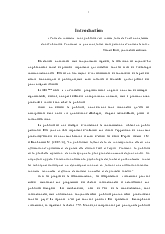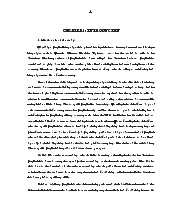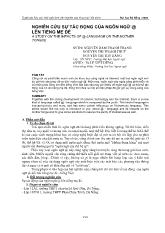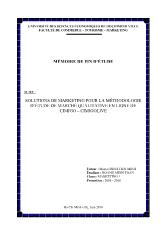Lexical and morphological characteristics of medico-Pharmaceutical texts and pedagogical implications
- Người chia sẻ :
- Số trang : 122 trang
- Lượt xem : 29
- Lượt tải : 500
- Tất cả luận văn được sưu tầm từ nhiều nguồn, chúng tôi không chịu trách nhiệm bản quyền nếu bạn sử dụng vào mục đích thương mại
Bạn đang xem trước 20 trang tài liệu Lexical and morphological characteristics of medico-Pharmaceutical texts and pedagogical implications, để xem tài liệu hoàn chỉnh bạn click vào nút DOWNLOAD LUẬN VĂN ở trên
English for Pharmacy was first introduced to pharmacy students at Hanoi University of Pharmacy (HUP) during the 1970s. The course has so far been a remarkable contribution to the university curriculum. Nevertheless, there are some disadvantages posed for the course. English for Pharmacy is currently taught for one semester, which is equal to 45 contact hours. The limited time allotment does not allow the syllabus to cover substantially the subject-matter content. Furthermore, according to the recent survey carried out by the English Department at HUP, 47% of students at HUP thought the ESP course was difficult for them, and the same number of students wanted a longer time allotment for the course. This is explained by the fact that many students feel they do not have time to get acquainted with and practice skills and sub-skills while participating in the course. As a matter of fact, the major tasks throughout the course are concerned with reading comprehension. Besides, other activities such as speaking/presentation or writing are included, but not dominant. The lessons in class are only able to provide them with the rough comprehension of the texts in which the content is pharmacy-oriented, or those in which the content is both pharmacy-oriented and medicine-oriented (hereinafter called medico-pharmaceutical texts). It is notable that the students have undertaken few courses on professional subjects in their curriculum, which indicates that their background knowledge of their major is scattered and insufficient. Accordingly, the texts used during the ESP course here are only at a moderate level of difficulty, regarding specialist knowledge, so that students can thoroughly understand them without previous specialist background. Despite this, they cannot commit themselves to understand the texts thoroughly, and therefore they do not acquire enough knowledge to perform the comprehension tasks. Although they are instructed to deal with them in a basic way, they still find it a struggle to comprehend the linguistic characteristics of the texts. Therefore, it is due to these difficulties and the learning needs of the students that a more thorough analysis is required of the English texts they study in class.




